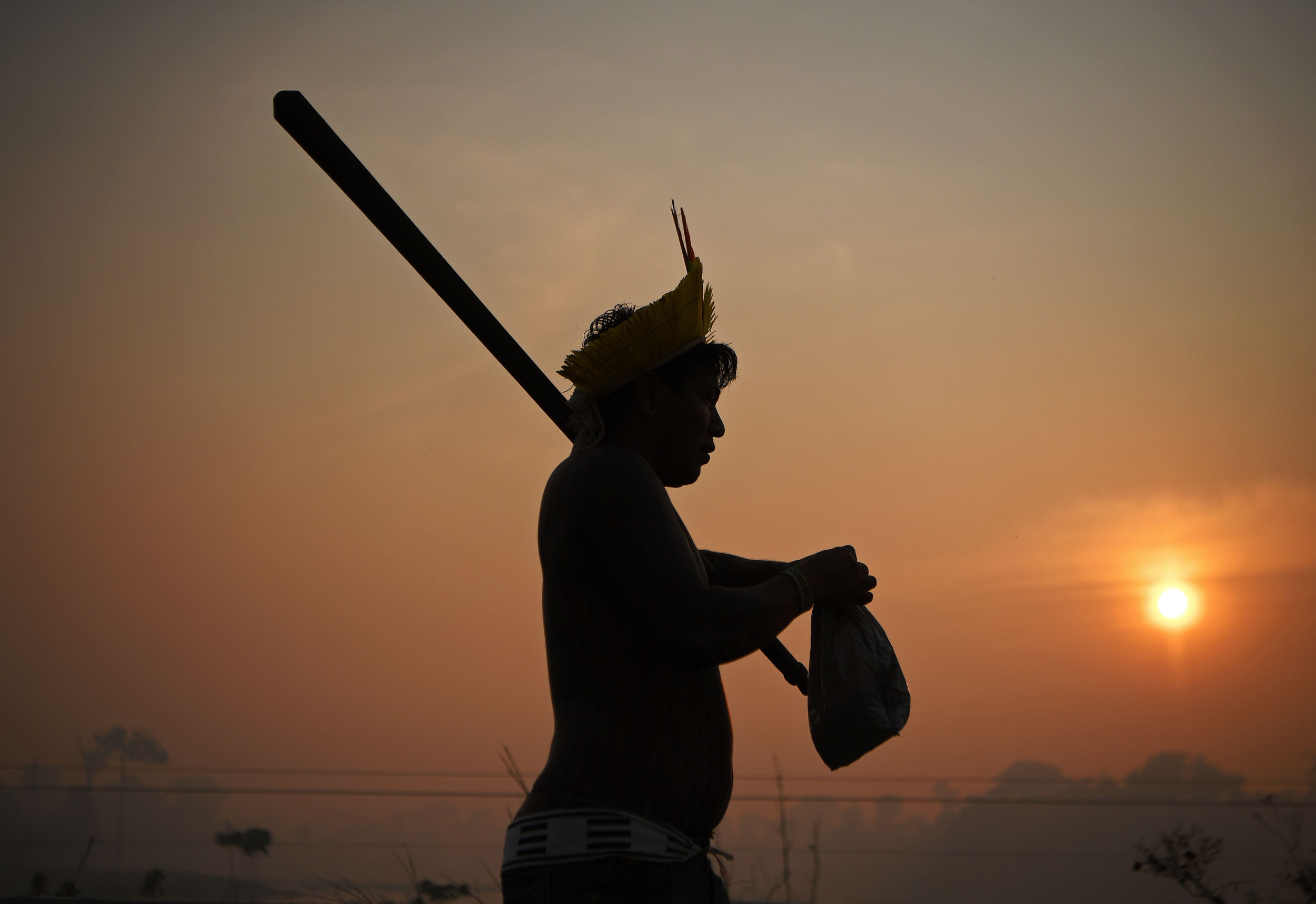For Indigenous people like me, our land is our home. It provides us shelter, security, and a deep connection to our ancestors. Indigenous Peoples have been forced to fight to protect our lands from invasion and destruction for centuries, and right now in Brazil, we are leading one of the largest and most critical battles to protect Indigenous lands in modern times.
Large companies, particularly from the agribusiness and mining industries, and Brazilian politicians who support them, are doing everything they can to take land from Indigenous communities, all in the name of profit. If successful, the consequences risk not only destroying the homes of nearly 2 million Indigenous Peoples from more than 300 different ethnic groups, including non-contacted peoples living in voluntary isolation, but also the planet at-large by making it impossible for the world to stave off climate catastrophe.
Indigenous land in Brazil spans across the country’s six biomes, all of which are precious ecosystems crucial to the biological and systemic maintenance of the Amazon, the world’s largest carbon sink, accounting for nearly 20 percent of the world’s carbon captured by vegetation. It is the most crucial resource in the world’s fight to mitigate climate change, and it is essential to preserving the planet for future generations. This land is critical to regulating air quality and slowing the pace of global warming.
Despite its significance, the Amazon has faced severe deforestation, with the rainforest’s tree cover stripped by about 17 percent since 1970 by greedy corporations and individuals willing to destroy this critical land for resources. Brazil has lost 69 million hectares of native vegetation in the last 30 years. However, only 1.6 percent of this deforestation has occurred within Indigenous lands, even as Indigenous lands account for 35 percent of the Amazon, a direct result of Indigenous Peoples’ work to protect the Amazon as its stewards. The battle to preserve Indigenous Peoples’ right to this land is a battle the world cannot afford to lose.
Brazilian Indigenous movements, national, and international allies are taking a stand in support of Indigenous lands and secured a major victory last month when Brazil’s Supreme Court rejected an arcane legal thesis that would put already demarcated Indigenous lands at risk and place a limit on the creation of new Indigenous territories, which would threaten and displace hundreds of Indigenous communities and open their land up to private industry.
While the Supreme Court decision represented an important win for Indigenous communities, the war still rages on, and it’s long past time world leaders recognize the urgency of what’s happening in Brazil. Leaders in the U.S. and European Union and global climate activists must start treating the protection of Indigenous rights in Brazil as a priority for the global climate agenda and do everything they can to pressure Brazilian leaders to respect Indigenous Peoples’ right to their land before it’s too late. Otherwise, their grand commitments at Climate Week and COP28 could be for naught.
The Brazilian Senate recently approved PL 2903/23, a bill that ignores the Supreme Court’s recent decision and does even further damage to Indigenous rights in Brazil. The bill threatens nearly 400 Indigenous ethnic groups with forced removal in order to pave the way for the construction of new military bases, highways, and power plants. It is no exaggeration to say this bill is a modern-day version of the Indian Removal Act passed by the U.S. Congress in 1830, which led to the infamous Trail of Tears.
It is critical to the future of the planet that Brazilian President Luiz Inácio Lula da Silva vetoes the entire bill before the Oct. 18 deadline. If he gets this wrong, the devastation to Indigenous communities and the vital ecosystems they have safeguarded for centuries will be irreversible.
Even if President Lula does veto the bill, the fight will still be far from over. The bill will go back to the National Congress, many of whom are highly influenced by the agribusiness and mining industries, and the threat to our global future will remain. We cannot ever stand down from this battle.
This is a fight for the future of our planet and future generations. Corporations have proven they will stop at nothing in their pursuit of profit as they exploit the environment at the expense of Indigenous lives. That’s why it takes all of us—not just in Brazil but also in the U.S., Europe, and beyond—uniting to protect the Amazon and every biome, and the Indigenous communities across Brazil and the world.
If Indigenous Peoples’ Day is to be more than just a symbolic gesture, President Joe Biden, leaders in Congress and climate activists must recognize the opportunity to prevent the dark history of Indigenous dispossession and displacement in the Americas from repeating itself. They can do so by urging President Lula to veto the bill sitting on his desk and moving forward prioritizing the rights of Indigenous People to their lands in Brazil. Our future—Indigenous Peoples’ and the world’s—depends on it.
Kleber Karipuna is an Indigenous leader of the Karipuna people of Amapá, and executive coordinator of the Articulation of Indigenous Peoples of Brazil, representing the Brazilian Amazon through the Coordination of Indigenous Organizations of the Brazilian Amazon—Coiab. He holds a degree in environmental management and a master’s degree in human rights.
The views expressed in this article are the writer’s own.

